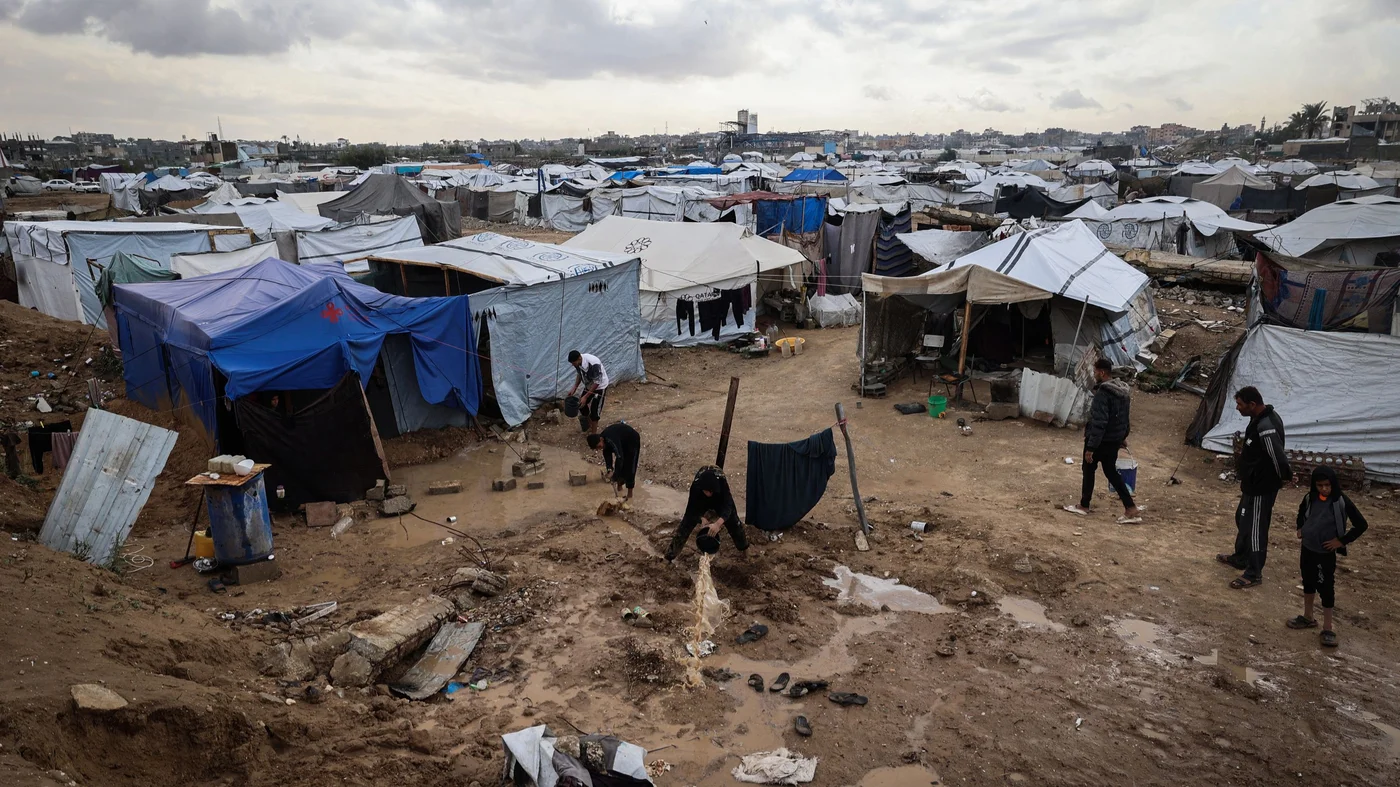Palestinian men empty buckets of water after heavy rain flooded a makeshift camp housing displaced people in Maghazi refugee camp in the central Gaza Strip on 25 November 2025 (Eyad Baba/AFP)
The UN has said that reconstruction of the Gaza Strip will cost $70bn over the coming decades, while warning of imminent economic collapse in the occupied Palestinian territories
The report released by the United Nations Conference on Trade and Development (Unctad) said Israel‘s bombardment of the enclave had created a “human-made abyss” in Gaza, with the economy contracting by 87 percent over the course of 2023-2024.
Israel’s systematic destruction and economic siege has left its GDP per capita at just $161, among the lowest in the world.
Meanwhile, repeated attacks by soldiers and settlers in the occupied West Bank were also plunging the Palestinian territories into crisis.
The UN said decades of economic progress had been wiped out in Palestine.
“The resulting economic crisis is among the ten worst globally since 1960,” reads the report.
“While the situation in Gaza stands apart; being the most severe economic crisis on record. “
Spiralling crises
On Monday, Ramiz Alakbarov, UN deputy special coordinator for the Middle East peace process, said the situation in the enclave remained “bleak”.
He called for an urgent international effort to scale up humanitarian assistance as people continue to endure “unbearable living conditions”.
He said over 1.7 million people remain displaced, many crammed into shelters with limited access to water, food and medical care.
“The UN and its partners are still facing major challenges in providing shelter materials such as tents and blankets,” Alakbarov said.
“As we enter the winter months, these delays must be urgently resolved.”
He added that hospitals continue to struggle without reliable electricity and water, urging Israel to expand crossing capacity and expedite the clearance of supplies, including UN aid.
Gaza’s Government Media Office said Israel is allowing just 200 aid trucks a day, far below the 600 agreed under the ceasefire.
The World Food Programme (WFP)’s most recent report said most households in Gaza were currently unable to afford basic food items.
The UN has also warned of the devastating impact that Israeli raids, restrictions on movement and continuing illegal settlement construction in the West Bank were having on the Palestinian economy.
They said movement restrictions affected over 3.3 million people, raising transport costs, lengthening travel times and “disrupting access to markets, employment, education and health services”.
“UNCTAD’s report calls for immediate and substantial intervention by the international community to halt the economic freefall, address the humanitarian crisis, and lay the groundwork for lasting peace and development,” the report said.
“The report calls for a comprehensive recovery plan for the Occupied Palestinian Territory, with coordinated international assistance, restoration of fiscal transfers, and measures to ease constraints on trade, movement and investment.”














